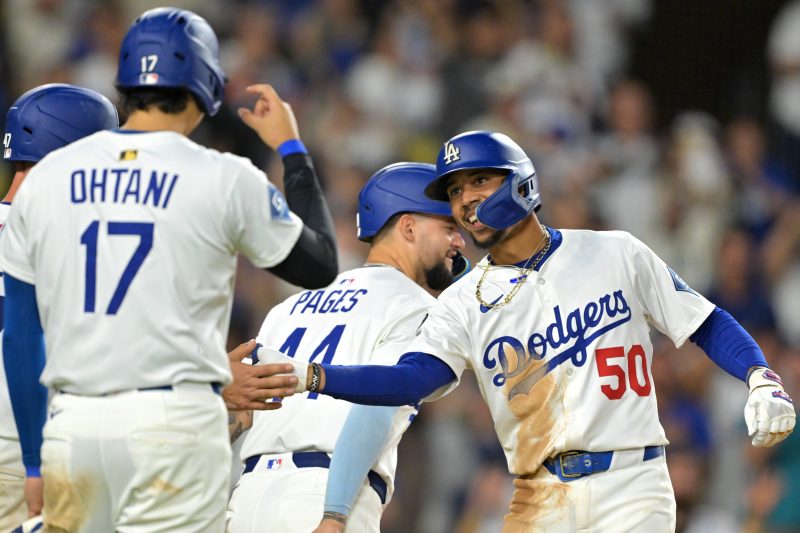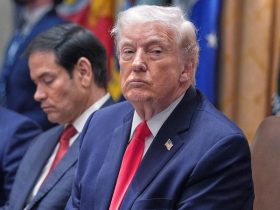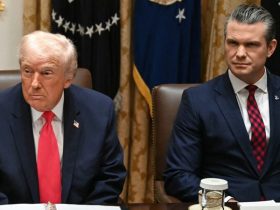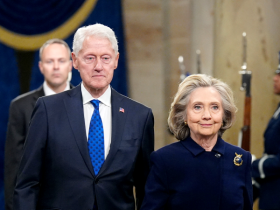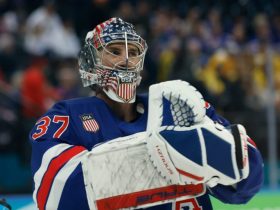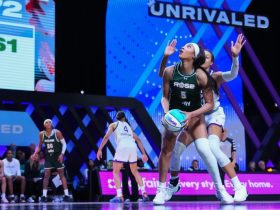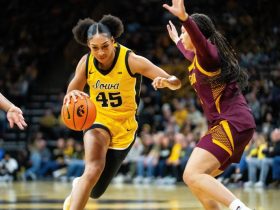It will be just one data point – the outcome of a single playoff series – yet the National League Championship Series pitting the Los Angeles Dodgers against the Milwaukee Brewers could, in the long run, signal so much more.
A narrative is at stake, and it goes far beyond the Average Joes vs. Hollywood Bros drama that will play out on the field.
The Brewers can do much more than simply eliminate the Dodgers. Upset them, really, if you believe Las Vegas and the little casino housed in your pocket. No, they can become something approximating a nightmare for Major League Baseball’s 30 owners.
We’re running out of runway until Dec. 1, 2026, when baseball’s nuclear winter – commissioner Rob Manfred has pretty much decreed it as much – commences. A lockout is not just a possibility – it is expected.
A potentially lengthy and industry-damaging work stoppage is on the docket, with the term and the tension likely determined by how hawkish owners are in pursuing a salary cap, or something like it.
That’s been a white whale they’ve pursued going on four decades now, an aim they determined was worth the cost of tanking a World Series, and now management is extra thirsty, what with the collapse of the lucrative regional sports network model and no shortage of existential crises painting an uncertain future.
Competitive inequity will be the claim, the easiest sell to fans: Why watch if you feel like your team never has a chance?
In a landscape where a handful of teams operate their own sports networks in massive markets, while others are essentially wards of the court, with the league taking over their broadcast operations but with an uncertain revenue stream, it’s a fairly legitimate gripe.
We’ve already heard – and will hear, many more times this series – how the Brewers are getting by on a payroll of just $130 million or so. And that the Dodgers’ checks in around $320 million, or $417 million for luxury tax purposes, according to Spotrac.
Yet despite those disparities, both franchises have, since 2018, fulfilled the objective any team in this modern era of expanded playoffs sets out to achieve: Make the playoffs as many times as possible to ensure the greatest chance at a championship.
The Brewers have made Rob Manfred’s Big Dance seven times in the past eight seasons, a better playoff rate than six of the eight bigger-market franchises projected to pay a luxury tax bill this season.
Only the Dodgers and Houston Astros – who made it eight consecutive years before missing this season – can claim similar or superior success making the playoffs.
Does payroll help? Of course it does.
The Dodgers have a seemingly bottomless trough of revenue and, unlike the Yankees, seem willing to tap it for almost anything. Yet they’ve also spent money to make money, with Shohei Ohtani’s almost entirely deferred $700 million deal bringing back a significant return on investment thanks to their trove of partnerships with Japanese corporations.
(Or perhaps you weren’t aware of their alliance with, say, Tokyo Electron, “which manufactures and sells equipment for producing semiconductors and flat-panel displays, to become a Proud Partner of the Los Angeles Dodgers.”)
No, the Dodgers are 1 of 1, with an alignment from ownership to front office to dugout that’s the envy of the industry. It’s why they’re going on 13 consecutive playoff appearances, 12 division titles, two World Series crowns and, with four victories over Milwaukee, their fifth NL pennant since 2017.
The Mets, out of the playoffs in the first year of Juan Soto’s $765 million contract, certainly can’t say that. The Yankees have made one World Series since 2009. And the Phillies, aggressively shooting for a title the past eight years, are nearing a crossroad with a core growing older and perhaps splintering.
Meanwhile, Milwaukee has chugged along through two general managers and two managers, residing in the 38th-largest media market in the country (and smallest in MLB). They just took out No. 3 (Chicago) and can slay No. 2 this week
Now imagine the narratives that might emerge based on the following outcomes:
Dodgers truck Brewers, go on to win first back-to-back championships since 2000: It’s clear the financial disparities in this game are out of control!
Brewers upset Dodgers, go on to World Series featuring a first-time Fall Classic participant (Seattle) or a franchise that hasn’t been there since 1993 (Toronto): Money can’t buy everything!
You can imagine which side management and labor might land on.
It’s not hard to imagine, once the winter fan fest circuit cranks up, a smaller-revenue owner taking cover behind the Dodgers’ back-to-back, their dominance a handy tool to tell fans exactly why that can’t happen here and why the home team’s off-season was a dud. (“But please, get hype and buy some tickets!”)
Naturally, there are countless factors that go into winning, although competence, desire and a lack of dysfunction among ownership and the front office are paramount. (Lest we forget, Frank McCourt once owned the Dodgers, and Fred Wilpon the Mets).
But recency bias can’t be underestimated. And a whole winter of Dodgers championship aftermath – while they still shop Rodeo Drive for free-agent or trade enhancements – can certainly shape a narrative.
On the other hand, a Brewers championship would provide years of “Told you so!” fodder from the union, as if 19 franchises reaching the World Series in the past 20 years didn’t already make that statement.
Either way, the yelling and posturing is only just beginning. And the winner of this NLCS will certainly provide ammo for one side or the other.

